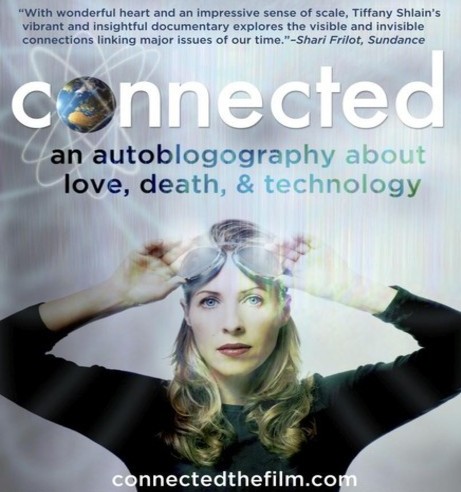The Lilith Blog 1 of 2
November 10, 2011 by Amanda Walgrove
The Quest for Connection
 Tiffany Shlain’s newest film, “Connected: An Autoblogography About Love, Death & Technology,” explores the history of human interaction, and the hope that natural and technological connections don’t have to be mutually exclusive.
Tiffany Shlain’s newest film, “Connected: An Autoblogography About Love, Death & Technology,” explores the history of human interaction, and the hope that natural and technological connections don’t have to be mutually exclusive.
Honored by Newsweek as one of the “Women Shaping the 21st Century,” Tiffany Shlain has been making films for nearly two decades. Somewhere in the middle, when she was 26, she also founded the Webby Awards.
It wasn’t until “Connected” that the filmmaker made the decision to step in front of the camera herself. Says Shlain, “I chose to speak my truth in order to speak to some universal truth. That was my guiding principle.” When she suddenly received news that her father had nine months to live and that she was pregnant with a second child, Shlain decided that telling her own story would ultimately convey the true struggle of what it means to be connected. The film encourages a return to our roots, to the fundamental values of human interaction and the use of social networks as support systems.
Shlain is preparing an accompanying Jewish educational curriculum for the film—after all, “Connected” tells a story of a Jewish family on a very deep level. Religion and technology share significant qualities: the ability to make us feel that we are part of something bigger, the importance of connectedness in thinking about our roots, and the notion of some networked order in an otherwise chaotic universe. In the film, Shlain deals with death and life simultaneously, at once yearning for a fading connection and forming another.
What are we losing by feeding our addictions to technology and maintaining these digital representations of ourselves? The film asserts that we are not addicted to the devices themselves—but rather the connections that they provide. Chemicals such as oxytocin and dopamine are released every time we establish a connection or absorb a piece of information. That’s a small burst of positive chemical reaction for every click, link, Like, and +1. With innumerable opportunities to unleash that chemical response, no wonder we love our devices.
Shlain has been observing “Technology Shabbat,” which she says has been life changing. Her version of a day of rest speaks to the personalization of observance, spanning generations and cultures. And Shlain believes that we’ve never needed that day of rest and recuperation more than now. She notes, “Heschel talks about Shabbat being a temple in time. I feel like when you’re operating in a culture that is always on 24/7, there needs to be a time when you have a protection around your space to be present with yourself, your own thoughts, and the people you love.”
“For centuries,” we hear in “Connected, “ “we have declared independence. Perhaps it is time that we, as humans, declare our interdependence.” The digital landscape that lies before us should not be rejected but rather used to its fullest potential, driven by a timeless desire to create shared experiences. After all, we continue to wield the same opposable thumbs that we had when we first met each other as humans. Whether we use them to leaf through the Bible, grasp another’s hand, or check in on Foursquare, it is plausible that we’ll always be seeking the same result: connection.
 Please wait...
Please wait...